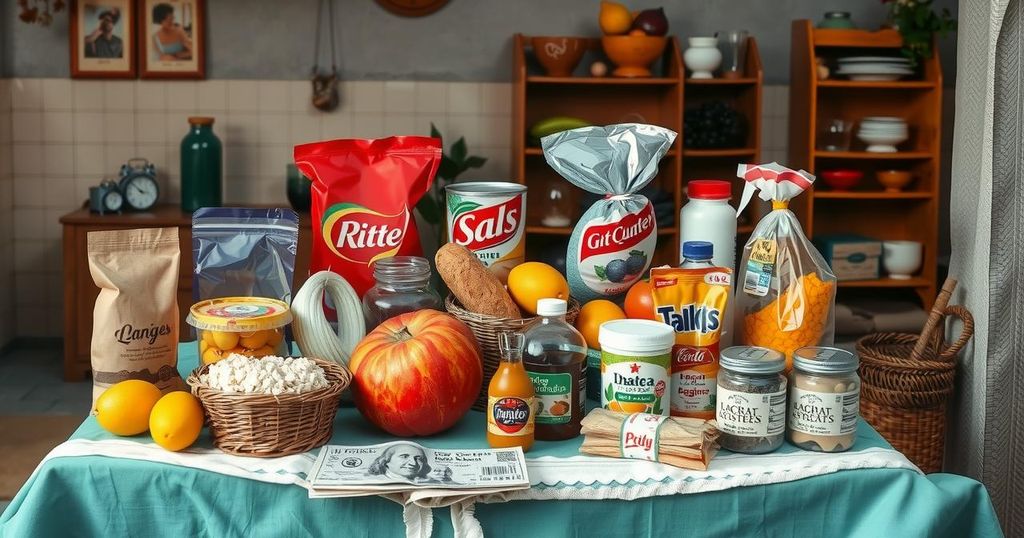In February, Mozambique’s prices for goods and services rose by 4.47%, driven mostly by food service costs increasing by 4.74%. Significant hikes were observed in major urban centers, particularly Tete and Xai-Xai. Local businesses, facing rising raw material costs and uncertainties, are adjusting prices while striving to maintain customer relations.
In February, Mozambique experienced a significant surge in the prices of goods and services, with an overall increase of 4.47% compared to the previous year, predominantly driven by a 4.74% rise in food service prices, as reported by the National Institute of Statistics. The largest hikes were noted in the categories of food and non-alcoholic beverages and restaurants, hotels, and cafes, which rose by 11.89% and 6.20% respectively.
Urban centers witnessed the most pronounced price escalations, with Tete reporting a notable increase of approximately 6.85%, followed by Xai-Xai at 6.17%. Other cities such as Maputo experienced a rise of 4.74%, while Nampula saw an increase of 4.71%, and Quelimane had the smallest rise at 3.45%. These figures underscore the growing challenges consumers face in accessing affordable goods and services.
In a recent visit to food establishments in Maputo, employees cited rising raw material costs, particularly in the wake of post-election protests, as a significant factor contributing to the increase in prices. Wilma da Cruz, an employee at a local bakery, elaborated that fluctuations in supplier availability necessitated adjustments in pricing to navigate the challenges.
Wilma’s bakery opted for a cautious approach to price increases, managing to restrict increases to 10%-20% to retain customer interest. This strategic move aims to balance profitability with customer loyalty amidst rising operational costs. Conversely, Raquel Lopes, a restaurant owner, acknowledged that while raising prices was a quick solution, it was crucial to maintain customer relationships and adapt to the prevailing economic realities.
The uncertainty confronting the restaurant sector remains palpable, as illustrated by statements from Anaisse Perreira, a snack bar manager, who noted a significant drop in customer numbers. The impact of seasonal factors, such as Ramadan, and reduced tourist traffic has compounded the challenges, necessitating cost-cutting measures to sustain the business.
Despite grappling with these issues, some business leaders are beginning to regain stability, though they face ongoing uncertainty regarding customer turnout and supply chain reliability. Anaisse reflected on moments of closure and the unpredictable nature of daily operations, emphasizing that many local suppliers struggled to deliver consistent products due to interruptions in harvesting and market activity caused by recent unrest.
February’s price increases in Mozambique, primarily driven by the rising costs of food services, underscore a broader economic concern for consumers. Urban centers faced the steepest price hikes, with local businesses adapting to market pressures amid uncertainties following post-election disruptions. As business owners strive to balance pricing strategies with customer retention, the longer-term recovery of the sector remains in question amidst fluctuating demand and supply challenges.
Original Source: clubofmozambique.com






